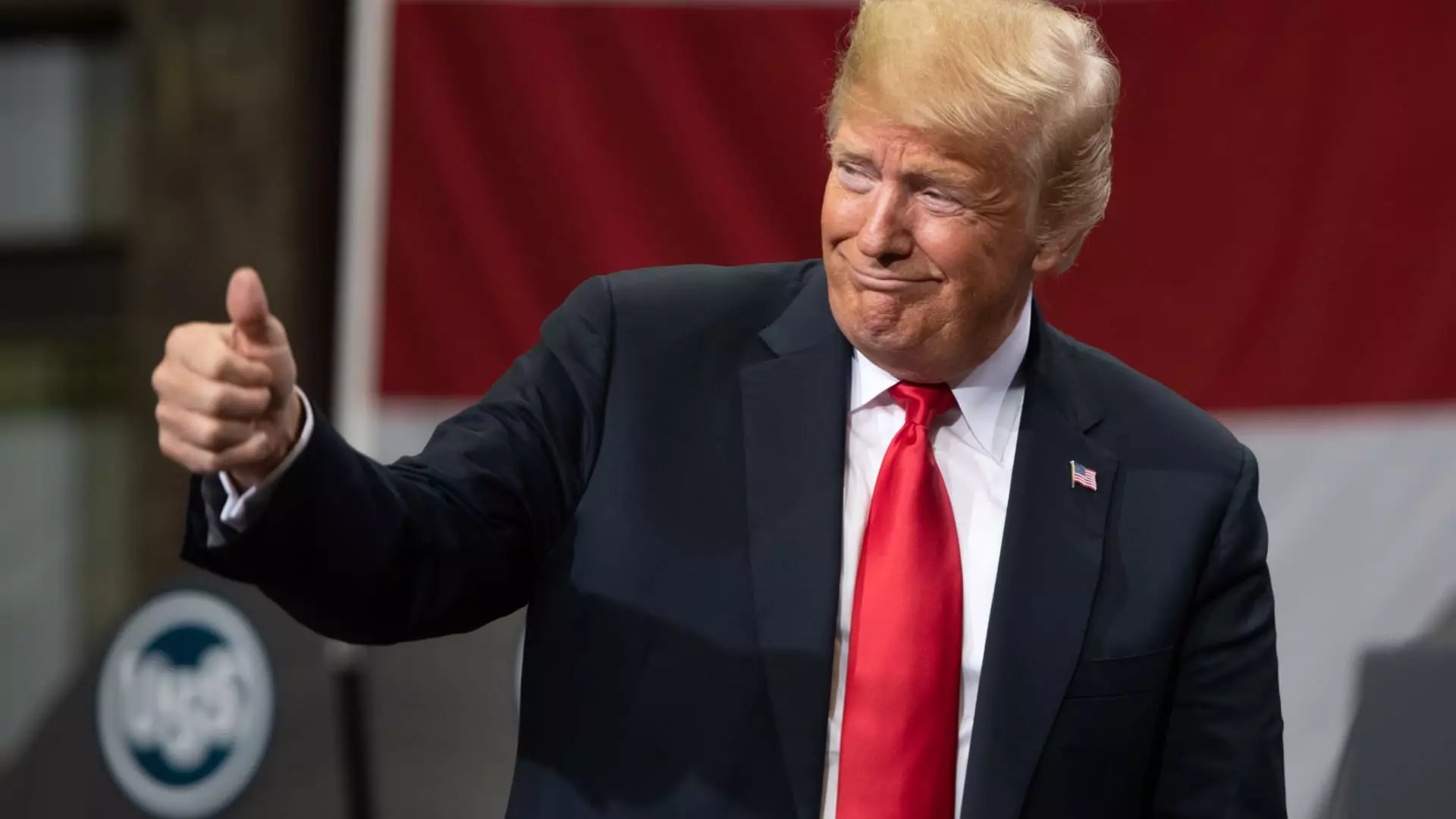In a stunning twist on the financial spectrum, President Donald Trump sent shockwaves through the stock market with a simple, albeit audacious, tweet. At precisely 9:37 a.m. ET, on what was initially a bleak morning for investors, Trump boldly declared, “THIS IS A GREAT TIME TO BUY!!!” on his social media platform, Truth Social. This tweet was not just a casual endorsement; it was a calculated maneuver that led to what some might call a market revival of epic proportions. The subsequent rollback of key tariffs he had previously declared sent stocks soaring, proving that a single statement from a high-ranking official can directly impact investor sentiment and market performance.
The dynamics of this market surge were not unprecedented, but they highlighted the susceptibility of investors to influence from political figures. The stock market, somewhat akin to a living organism, often reacts to stimuli—both positive and negative. Trump’s tweet acted as an electrifying jolt, causing stocks like the SPDR S&P 500 ETF Trust to rally impressively, netting massive returns for those who acted promptly on his recommendation. From a practical standpoint, such volatility poses essential questions regarding the ethics of political statements impacting financial markets.
Calculating Potential Gains: A Risky Bet
For those who grasped the moment and invested immediately following Trump’s tweet, the financial rewards appeared almost miraculous. For example, individuals who purchased into the SPDR S&P 500 ETF at or just after 9:37 a.m. could have seen astonishing returns of 11% by day’s end. An investment of $1,000 would have quickly transformed into $1,110—even as the index remained down compared to its position prior to the announcement of tariffs. The return showcased the surreal reality of day-trading culture, where fortunes can shift in mere hours based on social media influences.
However, this windfall raises alarm bells around market manipulation. Is it ethically sound for a politician to leverage their influence to steer investments in a manner that profits certain individuals while impacting thousands of other investors? Many online forums, like Reddit’s WallStreetBets, lit up with uncertainty and accusations of insider trading. Comments lamenting, “Can you imagine the insider trading?” emerged, underlining widespread skepticism around the interplay of politics and finance. The casual ability of a president to alter market trajectories with a mere swipe on his phone is both unnerving and indicative of a deeper systemic discrepancy.
The Influence of Social Media: A Double-Edged Sword
The resonance of Trump’s tweet was further amplified by the nature of social media itself. Platforms like Truth Social can serve as modern town squares, where information is disseminated rapidly, but also irresponsibly. Investors find themselves at the mercy of not just market reports, but alarming soundbites from political narratives that can sway their financial decisions in seconds. This phenomenon raises concerns over the vulnerability of retail investors—who may not have access to institutional insights—to whims of powerful figures making potentially reckless proclamations.
Moreover, the intertwining of Trump’s media interests with stock market trends ignites conversation about conflicts of interest. The fact that Trump’s post included an indicator of his own business, “DJT,” cannot be ignored. It exemplifies not merely a call to buy stocks but a tactic that inherently benefits Trump’s own financial standing, leading one to question the ethical landscape of such endorsements.
The Broader Impact on Investor Behavior
The tumultuous market activity post-Trump’s tweet epitomizes a drastic culture shift in investor behavior. Novice investors now more than ever rely on rapid, emotionally charged communication, often foregoing traditional due diligence in the quest for quick profits. This reality invites a more significant conversation on financial literacy and the dangers of speculative trading spurred by social media influencers.
As we move forward, policymakers and financial regulators must scrutinize how political rhetoric shapes market behavior, ensuring that such power does not morph into a breeding ground for unethical manipulation. The question of whether it is acceptable for political figures to influence financial markets remains contentious. The lines are, unfortunately, blurring, revealing a landscape that can favor the informed and well-connected while potentially leaving the average investor vulnerable to manipulation. The events of that fateful morning serve as a stark reminder that in the age of information, the stakes are perilously high, and the ordinary investor is navigating a minefield of uncertainties.

